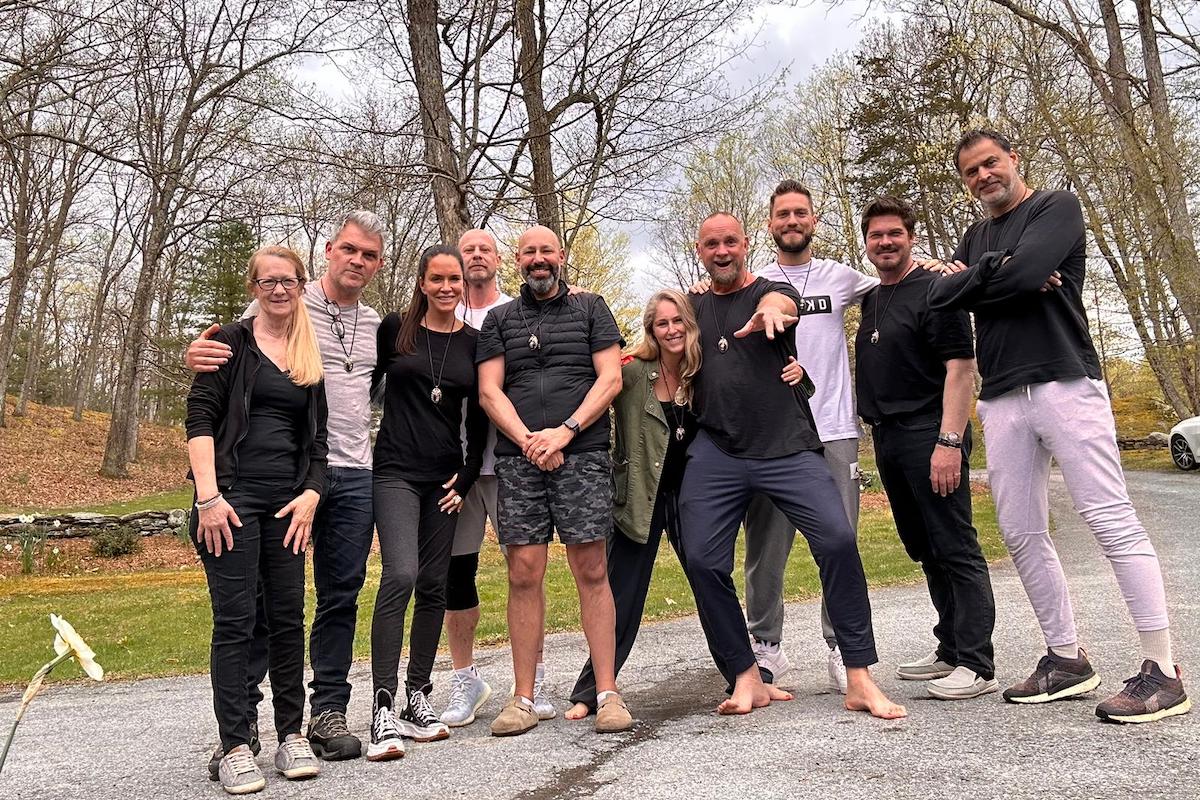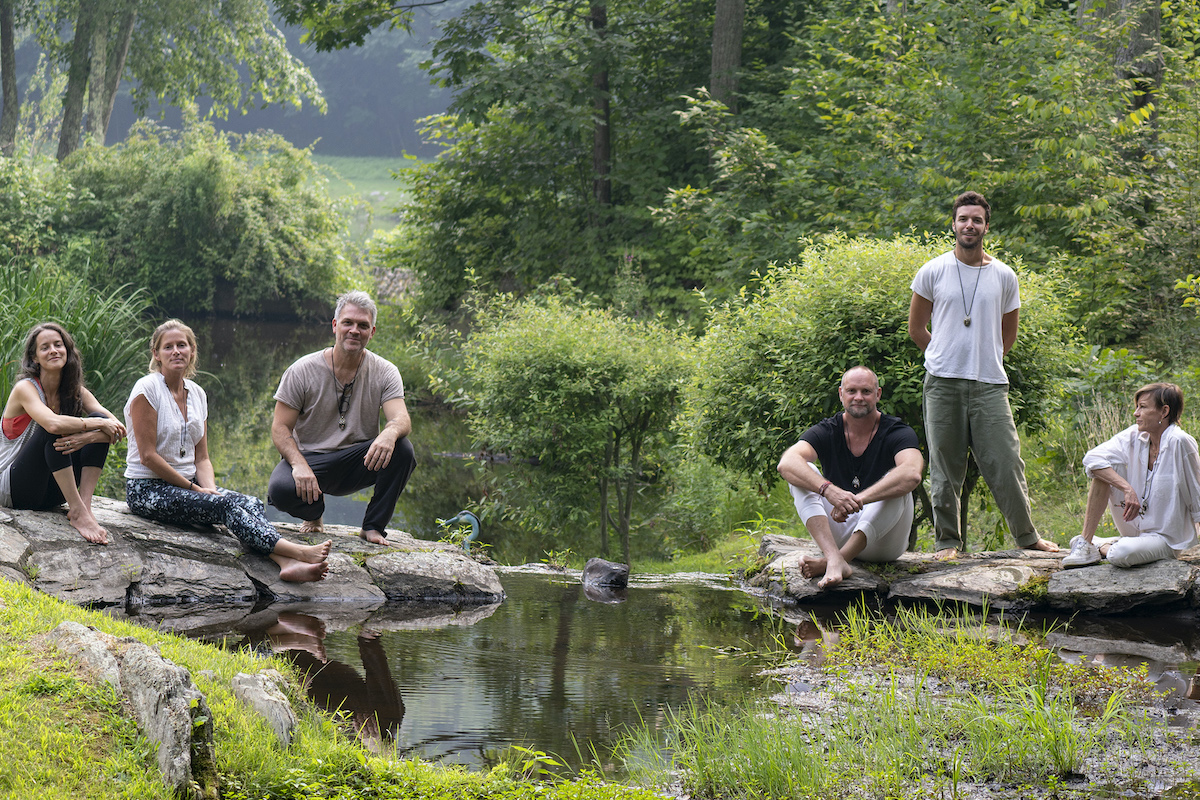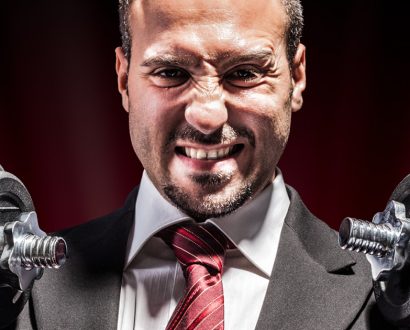The way of leadership has become a frenetic din. Coupled with an explosion of responsibility, transparency and expectations, the white noise that surrounds management is at times inescapable and often corrosive.
The antidote? A recent rise in the number of leadership retreats and resorts aimed at recharging the batteries and realigning the focus of those in charge. With so many options now available, the onus falls on executives to recognize when they’re in need of such an experience, and in what way.
In order to properly engage in self-care and self-development, you must first overcome the barrier that is your own ego. Thoughts like ‘I’m strong, I can handle this’, or ‘Should I use company money on something like this, when it could be invested in others?’ conflict in the arena of our psyches.
If we want to run a healthy, vibrant organization, we as execs have to take care of our own wellbeing first. Let me tell you: it’s not easy.
Opening up

When the opportunity for me to be a part of an Elevation Barn retreat first arose, I wasn’t really sure what to expect. I’d never done a retreat before; I’m a bit of an introvert, always slightly nervous about openly sharing feelings. This would put me among a group of complete strangers for four days.
The furthest I’d gone before was reading a few books, such as the Dalai Lama’s The Art of Happiness. I’d done a lot of goal setting throughout my life, too, but that was mainly career-focused. In hindsight, I was basing my own self-value mainly on what I was able to achieve at work. This is risky and unsustainable, as I would learn during the retreat.
I wasn’t skeptical, because I knew it would be the sort of thing where you get out what you put in, but if you go into it expecting to get a solution to one of your issues from someone else, you’re not really making progress.
Elevation Barn has six locations around the world, and each is tailored to deliver very specific results. My retreat took place at the 18th century BlueHills lakeside estate near Millbrook, a leafy village in Dutchess County, about two hours’ drive north of New York City.
All were wrestling with questions we all face, regardless of age or experience: ‘What is my purpose and what makes me happy?
Things got off to a positive start. From the moment I arrived, I was basically treated like family. I met Elevation Barn Founder Will Travis, a former marketing leader who’d achieved incredible success in his industry, but who hadn’t lived a well-rounded, well-balanced life. When that life fell apart, he saw that he wasn’t the only one to suffer. Now, he’s reinvented himself as a guide to help people find their purpose.
Will’s manner set the tone for the rest of the weekend: warm, social, authentic and caring. He didn’t present himself as a guru with all the answers; in fact, he was doing a lot of the retreat’s activities with us, because he still gets so much value from it. Often, he’d lead from the front, in terms of sharing difficult and deeply personal things from his past.
Immediately, I began to feel more comfortable. Interestingly, the word ‘relax’ wasn’t often used. Will wanted us alert and engaged, rather than relaxed and listless. But first, he asked each attendee individually – all leaders in their own right, successful, senior people – for their permission for him to lead the retreat. This immediately took away any ideas of hierarchy or power struggles within the group.
A lot of my fellow retreat-goers were more senior than me, people in their late 40s and early 50s. All were wrestling with questions we all face, regardless of age or experience: ‘What is my purpose and what makes me happy?’
Accepting feedback

Despite my intentions, I began the retreat making internal judgments about my fellow attendees. When you meet people, it’s instinct or human nature to try to determine what kind of person they are. I soon realized that’s completely unhelpful, because when you put people in boxes, you start to treat them in certain ways; then you’ve lost the purity and openness required to make the group work.
Also, if you judge others without knowing it, you’re assuming they’re judging you, which then negatively affects the way you behave. Once I stopped doing that, I saw amazing other sides to these people, and that gave me the freedom to see other sides of myself.
In fact, I made several important realizations while I was at Elevation Barn, all of which lifted a weight off my shoulders. Understanding the power of empathy was one of the first; understanding how people feel and what motivates them is a very important skill for a CEO.
Later, we were asked to write down 25 things that make us happy. It sounds easy, but frankly, I found it tough. I got to about 10 and ran out of things to say. It’s actually upsetting, because you wonder if you’re just a miserable person.
What I took away from it was that as a CEO, I’d fallen into a trap of thinking I could give feedback, but didn’t need to take any on. I didn’t think I needed positive reinforcement from anyone.
Day two involved chosing a celebrity or someone from history we respected. Then we had to stand up in front of the group and, as that chosen figure, talk about ourselves for eight minutes, highlighting strengths, weaknesses and any advice we’d have to give. Eight minutes can feel like quite a long time in someone else’s shoes, but helped me to realise that in my position, I don’t really give any references to myself, or sell myself – and it was a useful exercise in seeing how to respond to other people.
After this exercise, we would split off into pairs and give each other a five-minute feedback session. Again, it was quite daunting. I’d known these people for a day-and-a-half at this point, and I was having to sit there, completely drained from having bared my soul as my chosen character, and give them honest feedback on what they’d been saying.
Now, I give a lot of feedback as part of my job, but that’s assessing someone’s performance in their role. Here, we were talking about deep, dark personal challenges. It felt next level.
What I took away from it was that as a CEO, I’d fallen into a trap of thinking I could give feedback, but didn’t need to take any on. I didn’t think I needed positive reinforcement from anyone.
But as I was receiving feedback, I could feel the energy returning to my drained body. Turns out I need feedback, positive or negative. It’s human nature to need reassurance that you’re doing the right things, or correcting when you’re not. One of the first things I did when I got back from Elevation Barn was re-establish weekly meetings with my direct reports, in which I’d both deliver and ask for feedback.
Finding solace

As leaders, it can be quite rare to get frank and direct feedback. In one instance, we had to give each attendee one-word responses to a presentation they’d given. One fellow ‘barner’ had received nothing but positive words until it came to me. I felt he hadn’t fully opened up, so I just said ‘closed’.
Later, he came to me and said, ‘Thank you for calling me out. I’ll do better.’ If he hadn’t received that feedback, he maybe wouldn’t have dropped his walls. We developed a deep bond at that very moment.
Whenever the introvert in me found these activities emotionally exhausting, I was grateful for the beautiful, peaceful surroundings. We’d go for walks in the local reserves, swim in the lake and take time to reflect on our own, which was incredibly restorative, as were the fresh, healthy meals prepared by the chef.
If a CEO is happy, it can have a significant impact on both their business and, taking it wider, society as a whole.
The last day brought another first: after lunch, we went around the room and had to offer a message of kindness to each person. I’d never experienced that before, and it was a powerful way to end the retreat.
Being a CEO or a business owner can feel quite lonely. You don’t always have the avenues to discuss your thoughts and feelings. With Elevation Barn, Will has provided such an avenue, and what I really appreciated was that it was never about asking other people for answers. You had to find the answers within yourself. In almost every instance, that’s where they were.
For CEOs and other business leaders, investing in personal growth is important; if you aren’t able to do it, you shouldn’t be leading others. On the other hand, if a CEO is happy, it can have a significant impact on both their business and, taking it wider, society as a whole.
Elevation Barn gave me a rare opportunity to take time out and find the key to the door that is within us all.
It is with tremendous excitement that we jointly announce a powerful new partnership between The CEO Magazine and Elevation Barn. Uniting the power of global storytelling with the power of elevated purpose, we are creating a new level of leadership to ignite the change required in the world today.
The CEO Magazine’s EB360, brought to you by Elevation Barn, takes 12 leaders on a journey of personal discovery to solve their most pressing personal, business and legacy challenges. This brand new program is your charter to create a positive impact within yourself so you can make a positive impact on the world.
As part of a highly curated syndicate, your inaugural retreat will cultivate a deep personal relationship with yourself and your cohort. Expanding out into a 365-day global membership experience, you will tackle the biggest challenges of our time and inspire the world with collective wisdom by gaining 360-degree vision and the perspectives and solutions to discover what really matters – so you can be the change you want to see.
To find out more and to receive the latest updates on this exciting new program, subscribe to our newsletter here.







